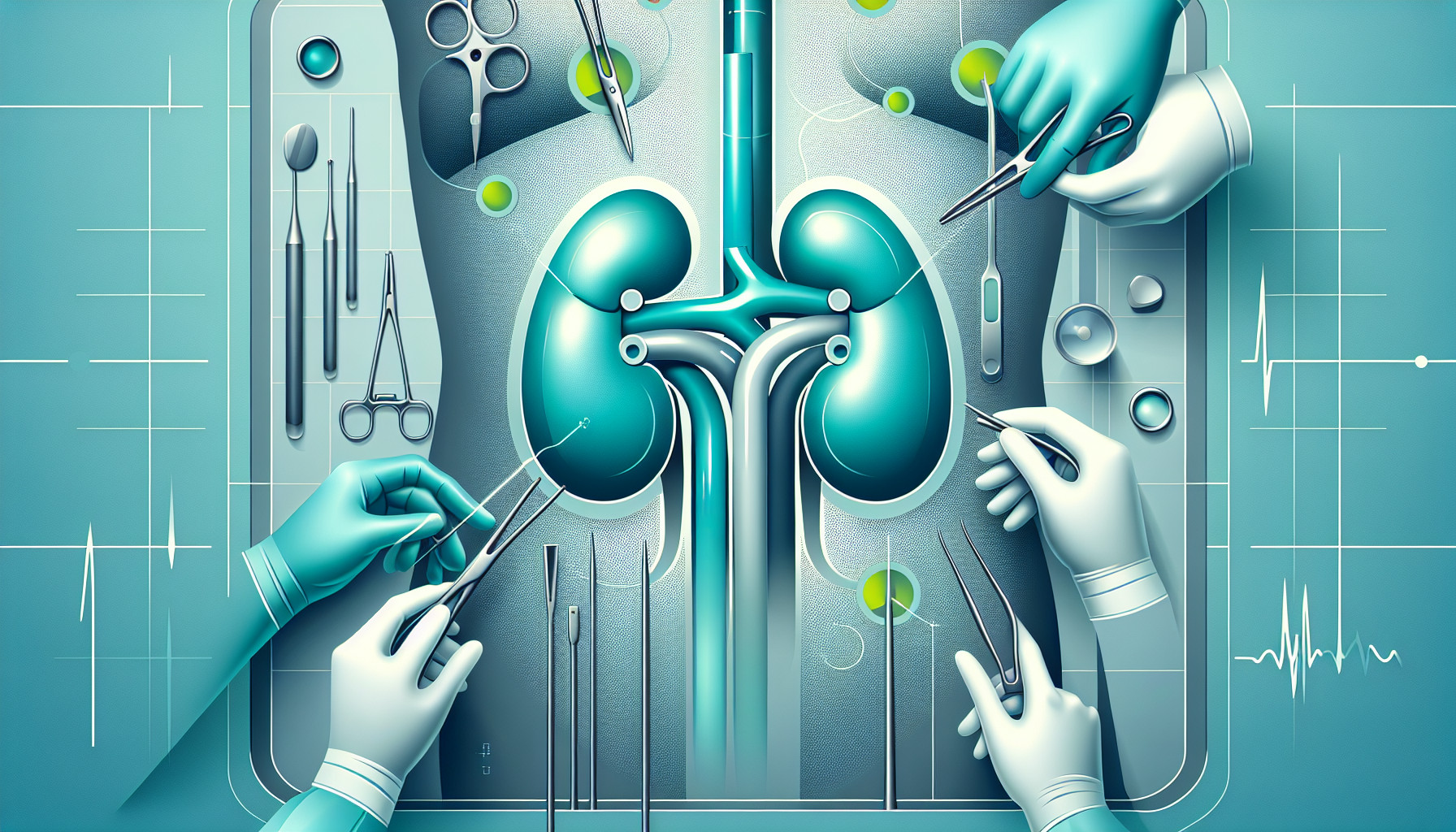Our Summary
This research paper discusses the challenges and risks associated with pregnancy in women who have received a kidney transplant. Women with severe kidney disease often struggle to become pregnant, and a kidney transplant can improve fertility. However, pregnancy after a kidney transplant can be complicated due to other health problems the mother may have, the functioning of the transplanted kidney, the effects of pregnancy on the kidney, the effects of the mother’s health on the baby, and potential risks from medications that suppress the immune system. Because of these risks, it’s very important for women who may become pregnant after a kidney transplant to receive counseling before the transplant and before becoming pregnant. This counseling should include information about birth control, when to become pregnant, fertility and pregnancy rates, the potential risks to the baby from immune-suppressing medications, the risks to the transplanted kidney, and other potential complications.
FAQs
- Can women with severe kidney disease improve their fertility with a kidney transplant?
- What are the potential risks and challenges of becoming pregnant after receiving a kidney transplant?
- Why is it important for women who may become pregnant after a kidney transplant to receive counseling before the transplant and before conceiving?
Doctor’s Tip
A doctor might tell a patient who has received a kidney transplant to maintain a healthy lifestyle, including regular exercise and a balanced diet, to help support the functioning of the transplanted kidney. They may also recommend avoiding smoking and excessive alcohol consumption, as these can negatively impact kidney function. It is important for patients to follow their prescribed medication regimen and attend regular follow-up appointments with their healthcare team to monitor the health of the transplanted kidney and overall well-being. Additionally, patients should be aware of the signs and symptoms of rejection or infection and seek medical attention promptly if they experience any concerning symptoms.
Suitable For
Patients who are typically recommended for a kidney transplant include those with end-stage renal disease (ESRD) who are no longer able to function properly with dialysis, have a good chance of surviving the surgery and post-transplant care, and have no other medical conditions that would significantly increase the risks associated with the procedure.
Some specific conditions that may warrant a kidney transplant recommendation include:
- Chronic kidney disease (CKD) stage 5 or ESRD
- Diabetes mellitus with kidney complications
- Hypertensive nephropathy
- Polycystic kidney disease
- Glomerulonephritis
- Alport syndrome
- Lupus nephritis
- Congenital abnormalities of the kidney
It is important for patients to undergo a thorough evaluation by a transplant team to determine if they are suitable candidates for a kidney transplant. This evaluation will include assessing the patient’s overall health, medical history, and any potential complications that may arise during or after the transplant surgery. Additionally, patients will need to undergo a series of tests to determine their blood type, tissue compatibility, and overall health status to ensure a successful transplant.
Overall, patients who are recommended for a kidney transplant are those who have exhausted other treatment options, have a good prognosis following the transplant, and are committed to following a rigorous post-transplant care plan to ensure the success of the procedure.
Timeline
Before kidney transplant:
- Patient is diagnosed with kidney disease and undergoes various treatments such as medication, dialysis, or other interventions to manage symptoms
- Patient is evaluated for a kidney transplant and undergoes a series of tests to determine eligibility for surgery
- Patient is placed on a waiting list for a donor kidney, which can take several years
- Patient undergoes kidney transplant surgery and stays in the hospital for a period of time for recovery
After kidney transplant:
- Patient is closely monitored for signs of rejection or other complications post-surgery
- Patient takes immunosuppressant medications to prevent rejection of the transplanted kidney
- Patient undergoes regular follow-up visits with their healthcare team to monitor kidney function and overall health
- Patient may experience side effects from medications, such as increased risk of infections or other health problems
- Patient may need to make lifestyle changes, such as following a specific diet or exercise regimen, to maintain kidney health
- Patient may experience improved quality of life and increased energy levels after the transplant, as well as a reduced need for dialysis
- Patient may consider pregnancy after the transplant, but must first receive counseling and guidance on the potential risks and challenges associated with pregnancy post-transplant.
What to Ask Your Doctor
- What is the success rate of kidney transplants in general, and specifically in my case?
- How long will I have to wait for a matching donor kidney?
- What are the potential risks and complications associated with a kidney transplant surgery?
- What medications will I need to take after the transplant, and what are the potential side effects?
- How often will I need to follow up with a nephrologist after the transplant?
- How will the transplant affect my lifestyle and daily activities?
- Are there any dietary restrictions I need to follow after the transplant?
- How will the transplant affect my ability to have children in the future?
- What are the potential risks and complications associated with pregnancy after a kidney transplant?
- Are there any specific precautions I need to take to protect my transplanted kidney during pregnancy?
Reference
Authors: Gonzalez Suarez ML, Parker AS, Cheungpasitporn W. Journal: Adv Chronic Kidney Dis. 2020 Nov;27(6):486-498. doi: 10.1053/j.ackd.2020.06.004. PMID: 33328065
